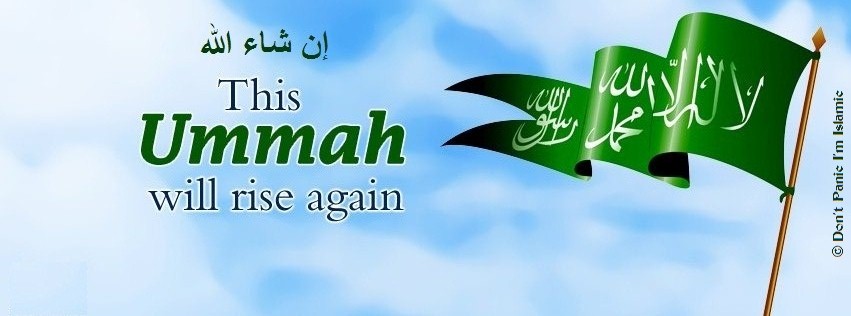السلام عليكم ورحمة الله وبركاته
 |
| Invitation to Islam |
بـــــــــــــــــــســم الله الرحمن الرحــيــــــــــــــــم
- لَقَدۡ كَانَ لَكُمۡ فِىۡ رَسُوۡلِ اللّٰهِ اُسۡوَةٌ حَسَنَةٌ لِّمَنۡ كَانَ يَرۡجُوا اللّٰهَ وَالۡيَوۡمَ الۡاٰخِرَ وَذَكَرَ اللّٰهَ كَثِيۡرًا ؕ
Verily in the messenger of Allah you have a good example for him who looketh unto Allah and the last Day, and remembereth Allah much.
Holy Qur’an (33:21)
- اِنَّ اللّٰهَ وَمَلٰٓٮِٕكَتَهٗ يُصَلُّوۡنَ عَلَى النَّبِىِّ ؕ يٰۤـاَيُّهَا الَّذِيۡنَ اٰمَنُوۡا صَلُّوۡا عَلَيۡهِ وَسَلِّمُوۡا تَسۡلِيۡمًا
Lo! Allah and His angels shower blessings on the Prophet. O you who believe! Ask blessings on him and salute him with a worthy salutation.
Holy Qur’an (33:56)
Here is an Important question for a Muslim who loves his/her Creator...
The Prophet of Islam Muhammad[صلى الله عليه وسلم], did many things during his life that are indeed worth remembering and undeniably worth following by the Believers. But, what was the foremost mission of the Prophet[صلى الله عليه وسلم] that none could or should ever overlook…
There are number of individuals and also large and small “Groups of Brothers”, who traveled long distances from their homes, to inform and repeatedly remind our Muslim Brothers and Sisters at great length, the minuscule details of how the Prophet[صلى الله عليه وسلم] dressed himself, behaved and lived his simple and honest life. I wish and pray that these individuals and Groups would also propagate the primary purpose and the foremost mission of the Prophet[صلى الله عليه وسلم]’s life with the equal prominence, if not more.
One may ask what was the most important mission that the prophet accomplished against all the odds and earned Allah’s Choicest pleasure? OR; What was the mission which Allah (S.W.T.) did not want the Prophet[صلى الله عليه وسلم] to fail into or to overlook? The answer is found in the following verse of the Holy Qur’an.
- يٰۤـاَيُّهَا الرَّسُوۡلُ بَلِّغۡ مَاۤ اُنۡزِلَ اِلَيۡكَ مِنۡ رَّبِّكَ ؕ وَاِنۡ لَّمۡ تَفۡعَلۡ فَمَا بَلَّغۡتَ رِسٰلَـتَهٗ ؕ وَاللّٰهُ يَعۡصِمُكَ مِنَ النَّاسِ ؕ اِنَّ اللّٰهَ لَا يَهۡدِى الۡقَوۡمَ الۡـكٰفِرِيۡنَ
O Messenger! Make known that which hath been revealed unto thee from thy Lord, for if thou do it not, thou will not have conveyed His message. Allah will protect thee from mankind. Lo! Allah guideth not the disbelieving folk.
Holy Qur’an (5:67)
Going back to the subject of the primary purpose and the foremost mission of the Prophet[صلى الله عليه وسلم]’s life, we discover from the Qur’an and the history that it was of INVITING those who were “outside”, to enter the Deen of Allah. Besides inviting the Pagan Arabs to Islam, the Prophet[صلى الله عليه وسلم] also conveyed the Revealed Message of Allah to the “People of the Book”. History records that prophet did send several missions to various places and did convey the Message of Allah to the Leaders of the “People of the Book”. He also entertained dialogues with them.
Doing Daw’ah to non Muslims and in particular to the “People of the Book” should be the Mission of those who regard the prophet to be “a good example for him”. Since large number of Christians are entering Islam in our times, it is worth devoting more time and effort in that direction. Our duty is to convey the Message of Allah which appears in the Torah, the Injeel and the Furqan with a suggestion of observing these True Messages that have been over shadowed by the non revealed guidance. If any who fails to judge by what Allah has Revealed therein, they are those who rebel.
My Dear Brothers and Sisters, this is no undue criticism of any particular group or any individual, but an eye opener for all the Believers who wish to preacher put into practice – the life style of Our Beloved Prophet Muhammad[صلى الله عليه وسلم].
- وَيَقُوۡلُ الَّذِيۡنَ كَفَرُوۡا لَوۡلَاۤ اُنۡزِلَ عَلَيۡهِ اٰيَةٌ مِّنۡ رَّبِّهٖؕ اِنَّمَاۤ اَنۡتَ مُنۡذِرٌ وَّ لِكُلِّ قَوۡمٍ هَادٍ
…But thou (O, Muhammad) art truly a Warner, and to /every people a Guide.
Holy Qur’an (13:7)
Please Visit...

































